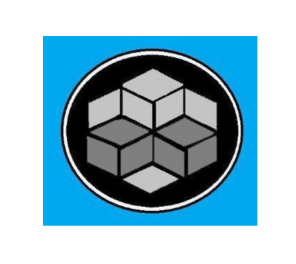No one grows up wishing to be a migrant, let alone functionally illiterate. Throughout history, migration is triggered by a people’s need to improve their quality of life. Reasons for migration are often motivated out of political, socioeconomic, environmental, & cultural/religious factors. Migration is not only hardwired to human history, but is part & parcel of our nature. When we cannot secure quality of life in one place, we naturally seek it out elsewhere. What better time to be alive than the age of the internet where ignorance is primarily driven by choice? In a world governed by information & smart technologies, alternatives to traditional schooling, particularly in the area of higher education, are becoming increasingly sought. Where there is education, there is functional literacy & where there is established literacy, there is hope for higher education. According to the University of Notre Dame’s Literacy Infographic, illiteracy, including functional, costs the world $1.19 trillion each year with a world population that stands 86% literate as of 2022.
This begs a rather broad question: how can functional illiteracy be mistaken for literacy in an age defined by quality of instantaneous information? The internet should be a place where “education migrants” thrive despite the massive pitfalls of misinformation & disinformation undermining quality of education. Online degree programs have thus far proven to be a good alternative to the traditional college experience, but ultimately fail to bridge gaps of educational access for demographically challenged peoples in the United States. For perspective, the World Bank reported 90% of the world’s population was connected to electricity, but the International Energy Agency estimates a remaining 775 million people worldwide live without electricity in 2022. Education cannot thrive in literal darkness. We therefore cannot resist wondering: how do we connect the remaining 775 million starting with the United States?
Without a pathway to access, would be students in some of the poorest & most functionally illiterate communities in the nation cannot access online education. Their internet routers, desktop computers, & tablets are seen as boredom killing devices, not as interactive educational tools. Hence, where there are ongoing disparities to higher education, functional illiteracy will remain. This testifies to the fact that a better world is an educated one, but where to start? Shai Reshef is the man behind the University of the People, a nonprofit private university with an estimated $1.3 million endowment situated on programs espousing long distance education. Mr. Reshef did not launch the University of the People with the goal of singlehandedly solving the crisis of higher education in America. He has taken a much more practical approach: offer education unconditionally with zero tuition as a protected human right to anyone anywhere in the world.
Currently, the University of the People offers graduate & undergraduate degrees in addition to certificates covering 3 primary areas: business administration, health sciences, & computer science with each area having earned accreditation from the Distance Education Accrediting Commission in 2014. To avoid charging students tuition, faculty members are volunteers. All educational materials such as textbooks are offered strictly online. There is no traditional campus. Mr. Reshef realized such an institution is only possible without the traditional academic overhead of a university like multimillion dollar sports amenities & facilities. Online distance learning without demographic barriers must be a priority of 2023 & beyond, but institutions like the University of the People cannot do it alone considering their limited resources, curriculum, & faculty.
The question is: what can state colleges & universities do like the University of Minnesota to further access in education using a similar modality originated by the University of the People for the realization of access by higher education? Perhaps it would be better to start small before getting too ambitious. To begin, it can be made feasible for state colleges & universities in Minnesota to form tuition free schools offering accredited online degree programs for underprivileged & demographically challenged people & communities statewide with a focus on STEM curriculum. Such a novel offering could attract “education migrants” to Minnesota in the same way others migrated to the state for quality-of-life purposes. Enrollees need only prove their Minnesota residency.
Nothing is free even in a world of tuition free accredited education. Such an initiative made in the name of “access in higher education” will require minimum qualifying standards for people from struggling, underprivileged, & underrepresented demographics. Scholarships tease the problem, but tuition free access to higher education will solve it for those that need it most.

